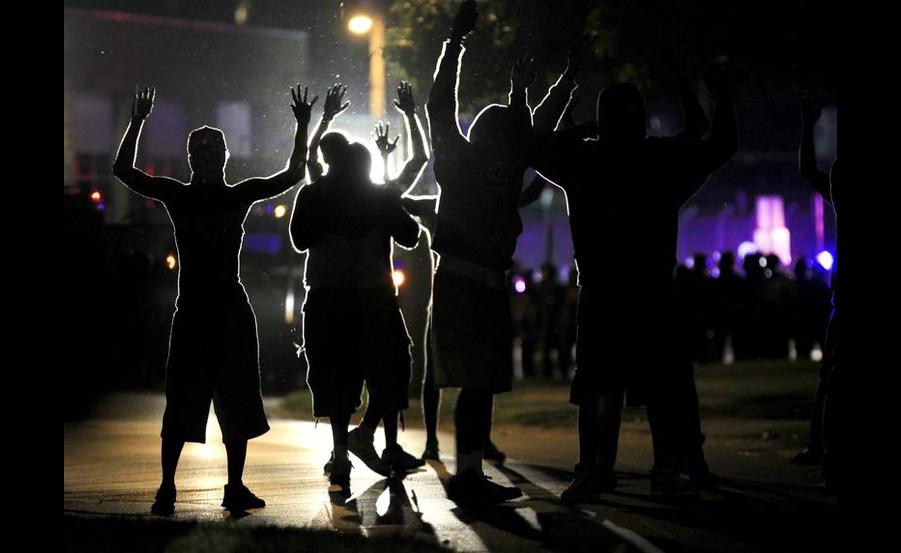
What came first: The chicken or the egg? We were reminded of this old philosophical conundrum as we pondered on the question of how the situation in Ferguson was covered in the U.S., Romanian and Tanzanian media. Have the country’s societal prejudices informed how the media covered the story or is the media responsible for cultivating such prejudices?
The United States
Race has at times been referred to as America’s “original sin.” When news broke that an unarmed black teenager had been shot and killed by a white police officer, old racial divisions flared up.
So, how did the media cover it?
Let us look at a story that appeared in the pages of USA Today, the country’s largest circulated national newspaper. Headlined, “Ferguson burning after grand jury announcement” the article employed words that we deem to be incendiary and potentially inflammatory.
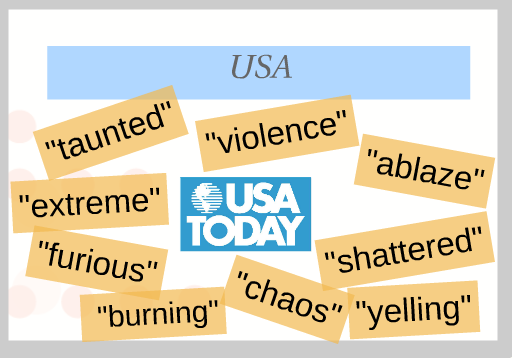
Following the grand jury’s decision not to indict Darren Wilson, the police officer who killed Michael Brown, the public’s perception of what happened divided along racial lines. Majority of white Americans felt the decision was justified, while African-Americans thought the opposite.
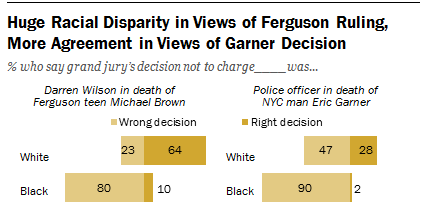
So: Did the media contribute to this racial polarization or did they merely reflect it?
Romania
There was not a lot of the proverbial ink spent on it, but the few stories about Ferguson that appeared in the media employed alarmist language at times. In August, immediately after the story broke, EVZ, a leading daily paper, had this headline: “The inferno in Ferguson.”
The tone calmed down in the following months, however. Nevertheless, on November 25th a story appeared with the headline, “The big cities CAUGHT FIRE. Protests and VIOLENCES after the policeman who killed a young black man got away UNPUNISHED” and one on November 26th, announcing “Shattering testimonials.”

After that, the usual references used in titles became mostly neutral, “The Ferguson Case” is one such headline.
When referring to Michael Brown, Romanian journalists used “young Afro-American” and “colored (black) teenager” to describe him. On the other hand, Darren Wilson is referred to as the “white officer”, “Caucasian officer” or simply “American officer”, without any reference to his skin color. It is unclear whether such phraseology was in the original wire stories that the paper had used or they reflected newsroom editorial choices.
These articles, however, encouraged some incendiary responses from commenters. With some suggesting that it was good that the ‘black thief’ was killed.
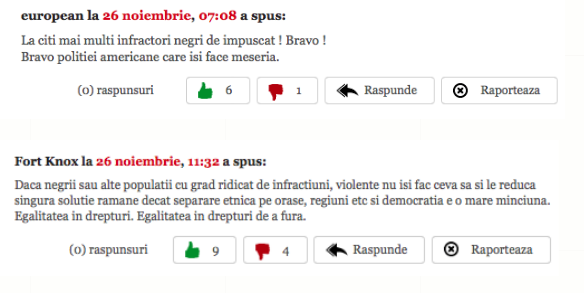
Romania is not without its own history of discrimination against minority groups. The Roma people, sometimes referred to as Gypsies, are viewed quite negatively in some section of the Romanian public. In fact, according to a study, 43% of Romanians have a negative perception of the Roma people. This may explain the racially tinged reaction by some EVZ readers of the Ferguson story. Or did the media feed into it?
Tanzania
Dar es Salaam has a long history of anti-imperialist thinking informed by its active role in the African liberation movement. Following the Ferguson incident, and later the Eric Garner case, some commentators took the opportunity to needle the US for what they deem to be a hypocritical stance on human rights. One columnist, writing in the country’s leading English paper, the Daily News, suggested that it was ‘terrorist’, the way the police were behaving towards African-Americans.
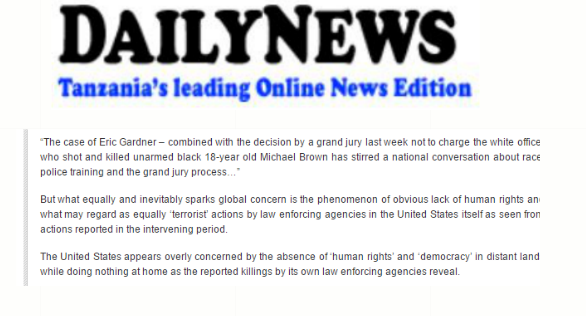
Conclusion
We believe that the media is how information is mediated to the public. Despite the increasing influence of social media to pierce through the mainstream media’s stranglehold on ‘truth’, the latter still has enormous power to shape how events are perceived.
But, we still ask: Does the media reflect societal prejudices or do they help to cultivate it. A question worth debating for the future prosperity of our civilizations.
Written by Omar Mohammed, Vlad Odobescu and Audrey Weil.

Thank you for such a complete and deep research on different resources and comparisons, you have done a lot of work with that. Result is wonderful insight to that topic and you personal touch of your home countries media coverage. Well done!
I really enjoyed your thorough blog post. The graphs and key words chart really helped me visualize the difference and similarities in news coverage. You asked an interesting question if media reveals the the social prejudices or help develop it. If we use Ferguson as a case study we could argue it does both – first reports on the actions, revealing social issues, and then adding to the fire by harping on the issues, even using controversial phrases like we saw in the video you posted. Such an interesting post!
I really enjoyed the parallelism of issues dissected for each nation. Comparing key headline verbiage and preexisting racial tension was really useful. The constant variables makes the content and research more fluid across each country’s content, giving it more potency in reading your conclusion. Thanks!
Insightful and rich in content. However, same fact sets could be presented in a more precise manner. I love the pointer that word choices conveyed particular framing and potentially biased readers’ views and inflamed passions. Great job!
Omar, Vlad,Andrey,
I liked your fair judgement between US media coverage and your countries media coverage about Ferguson issue. Your observation has showed up that how geographical and racial proximity plays a crucial role for placing the news in every media outlets. Its interesting piece!
I like the way you approached this story, it was interesting that you first looked at common words that showed up in articles about the incident especially since some of the common words were related to race and violence, which is not surprising. Some of the surprising words were the ones that were related to fire, for example ‘inferno’ and ‘ablaze’ these words really stood out to me because they were not word that I would have thought of when reading about the incident. I realize now that they really help explain the character of the situation and I believe the media picked perfect words to paint the picture of Ferguson.